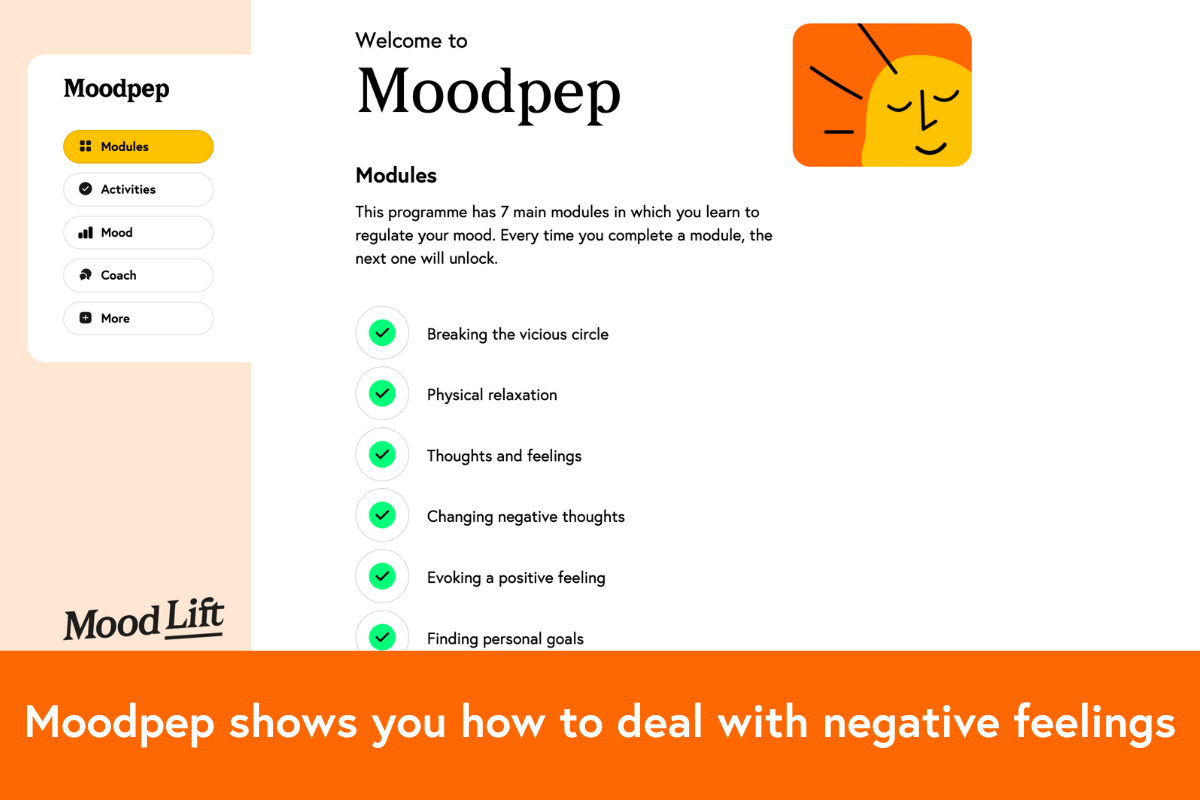About Moodpep
Moodpep is useful for anyone who wants to learn how to improve or manage their mood. With the help of interactive exercises, a mood tracker, and a personal e-coach, you'll be on track to improving your mood right away.
You’ll learn:
How to break free of your negative thoughts
How to evoke positive feelings
And how to find and achieve your personal goals
Moodpep takes around 30 minutes per week for 6-7 weeks.
What Students Say
Easy to read and digest due to the length, with clear action points. I recognized myself in the content.
I liked it! I think the advice is simple yet effective, which are - to me - the most important elements in conquering depression.
It is easy to understand, clear to the point and interactive, forcing you to actually think about what you are reading.
A Glimpse Inside
Detailed Description of the Content
Methods & techniques
Behavioral activation
Relaxation exercises
Cognitive restructuring
Evoking positive feelings
Goal setting
Modules
Breaking the vicious cycle
Defining stressful situations and do relaxation exercises
Learn about the connection of thoughts and emotions
Start asking critical questions to negative thoughts
Evoke a positive feeling through creating a help card
Finding personal goals and creating an action plan
Achieving your goals
Insight in chapter titles per module
1. Breaking the vicious circle
Introduction
An example
The three areas
A first step
Breaking the vicious cycle
Helpful thoughts
New activities
2. Physical relaxation
Learning to relax
Stressful situations
Relaxation exercises
Where and when to practice?
The exercise
3. Thoughts and feelings
The influence on thoughts on emotion
Thoughts that lead to negative emotion
Irrational, negative thoughts
Replacing negative thoughts
4. Changing negative thoughts
Finding negative thoughts
Asking critical questions
Changing your negative thoughts
Creating a help card
5. Evoking a positive feeling
Identifying a negative feeling, image or thought
Recalling a positive experience
Adopting posture, facial expression and WORD
Pushing away the negative thought, image or feeling
Creating a help card
6. Finding personal goals
Importance of personal goals
Finding personal goals
A well-formulated goal
Concrete, feasible, time-bound and meaningful
Making an action plan
What goal do you want to achieve?
How, where and when?
7. Achieving your goals
Challenging negative thoughts which prevent you from achieving your goal
Hindering thought
Asking critical but friendly questions
Changing your negative thought
The help card
Gaining more self-confidence to achieve your goal




